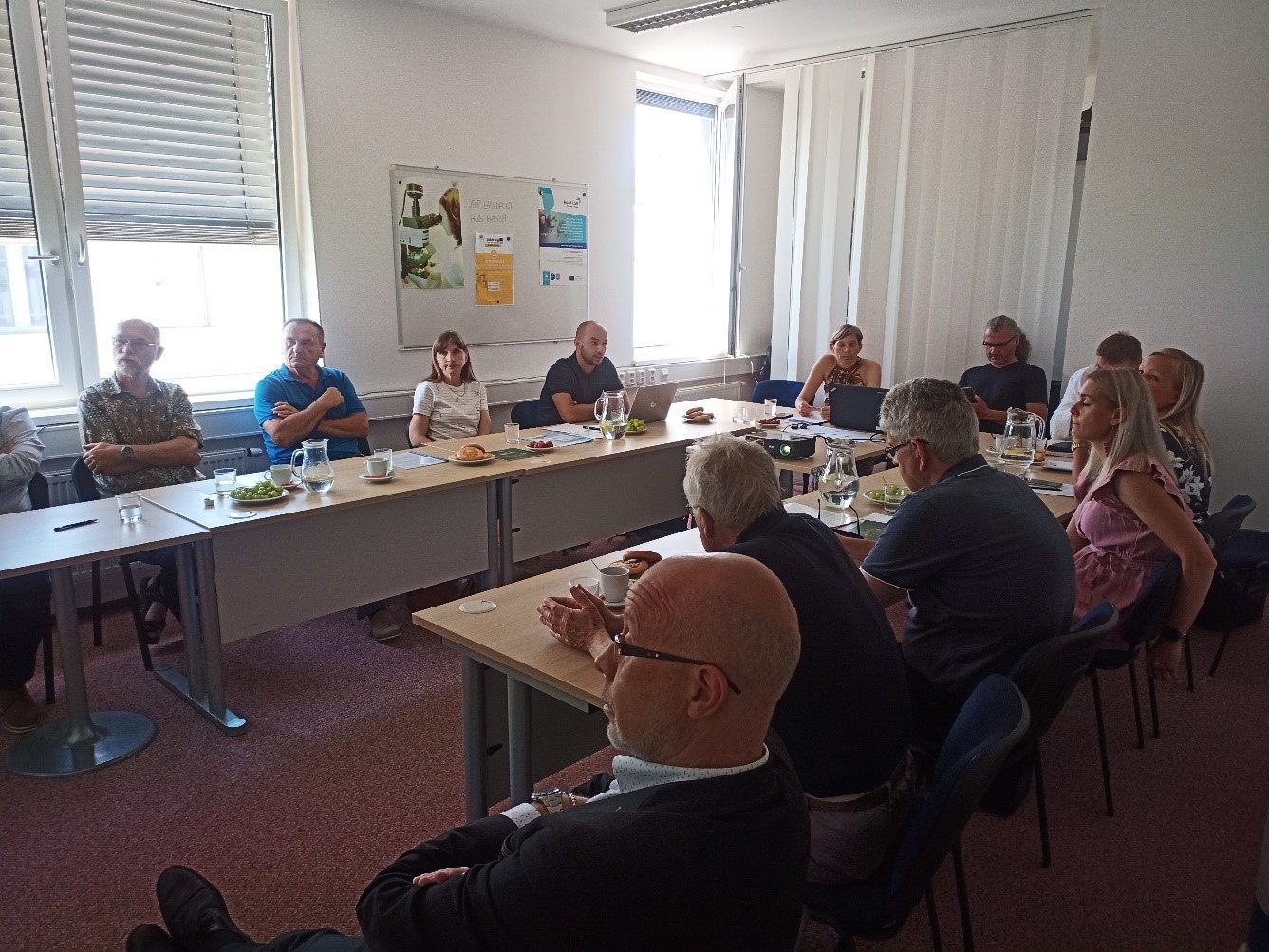Analysis of current legislation regarding corporate social responsibility was presented in the national seminar on September 28th 2017. Analysis based on the ROAD-CSR thematic study and was focusing on the lack of policy measures, social entrepreneurship, legislation, taxation and ethical dimensions.
Thematic Study of Corporate Social Responsibility in Slovenia was prepared as part of the ROAD-CSR project, implemented in Slovenia by E-institute and co-funded by INTERREG EUROPE programme. It offers a short overview of policies and measures taken by Slovenia to introduce and promote corporate social responsibility (CSR) among Slovenian companies. As Slovenia is yet to develop its CSR strategy or National Action Plan the study focuses on identifying the factors that could outline the national CSR priorities and the priorities emerging from Government, NGOs and business activities. Secondly, it addresses the lack of promotional activities among the business to promote the international frameworks and guidelines. The study then offers an overview of other legislative and strategic documents relevant for development of different aspects of CSR field in Slovenia, and an overview of individual fields and legislation connected to DOP, among others for example labour and environmental legislation. Finally, the authors mention the newest and the same time the oldest of CSR fields – the corporate tax responsibility.
Slovenia has yet to develop a national CSR strategy and CSR National Action Plan although it is committed to implementing them, both as a member of EU and OECD. National Contact Point (NCP) on the implementation of the OECD Guidelines for Multinational Enterprises has for years reported to OECD a lack of activities in the direction of the development of these documents. Listed reasons were lack of human resource capacities and lack of support within the government. However, first movements were made in 2016, when Slovenia finally translated the Guidelines for Multinational Enterprises and started with their promotion, although limited.
One of Slovenia’s priorities is transposition of EU directives into Slovenian legislation, of which some are more thought over in the national context than others. Green and socially responsible public procurement for example is currently undergoing revision after its implementation and the active promotion within the public sector. Word-by-word transposition of directive on non-financial disclosure, on the other hand, will be binding for a very low number of Slovenian large companies and as such should have an insignificant impact for the development of CSR in Slovenia and globally.
Firstly, there is no official document identifying national CSR priorities. Secondly, there is a lack of holistic approach or direct reference to the CSR in existing strategic documents. Apart from Slovenian Industry Policy 2014, other existing strategic documents do not directly address CSR. In addition, even the mentioned Policy seems not to be a relevant document for the current government when it comes to CSR. Holistic understanding of CSR should be basis for the process.
Slovenia is a bit further in the process of developing its National Action Plan on dissemination and implementation of the UN Guiding Principles on Business and Human Rights. This includes promotion and protection of fundamental workers’ rights in the entire production chain, which is one of key parts in CSR. Still the responsibility for it is divided among the Ministry of Foreign Affairs and the CSR NCP (under Ministry of Economic Development and Technology). The Ministry of Foreign Affairs has previously reported that the NCP is acting as a grievance mechanism also in the field of human rights . On the other hand, the NCP reports they have no awareness raising programs on this issue due to lack of qualified staff. In addition, Human Rights Ombudsman, which would have appropriate qualifications, has only limited jurisdiction – over authoritative part of the public sector. Although with Ombudsman’s current resources, they are not prepared to widen this jurisdiction.
The thematic study offers a basic overview of the existing policies and measures taken by Slovenia to introduce and promote CSR among Slovenian companies. As such, it is meant to be a tool in the development of national CSR documents, appropriate for the economy based on SMEs. This process should be carefully thought out with inter-sectorial cooperation throughout its implementation. Companies and CSOs in Slovenia were left to address the issues of CSR on their own for a long time, with government only partially facilitating these efforts; therefore, experiences from the private and civil sectors are invaluable to the current process.







